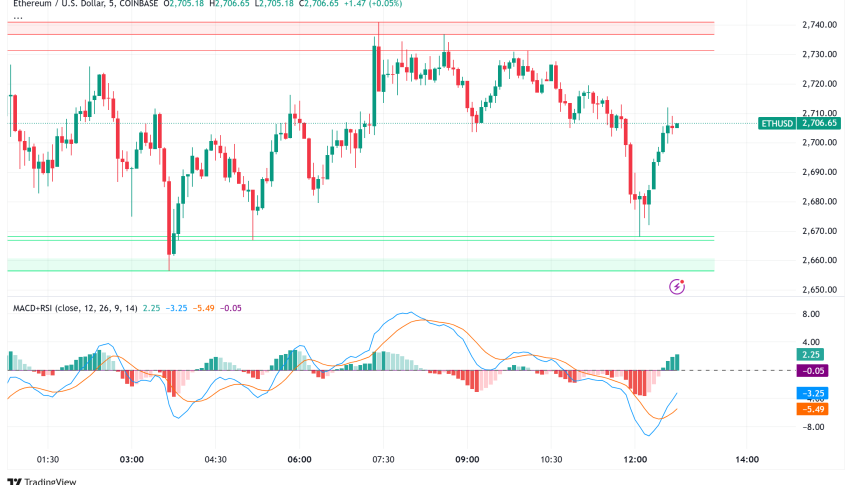Cryptocurrencies Are Declining More Sharply Due to Geopolitical Unrest
According to research by QCP Capital, the market for digital currencies has been impacted more severely than other assets as geopolitical

According to research by QCP Capital, the market for digital currencies has been impacted more severely than other assets as geopolitical tensions in the Middle East escalate.

A missile attack by Iran on Israel on October 1 caused a roughly 4% decline in the price of Bitcoin. This strike was a reaction to the killing of an Iranian commander and the political head of Hamas, which caused a larger sell-off in the market.
QCP Capital: Middle East Tensions Hit Bitcoin Harder Than Traditional Markets https://t.co/QMvuTtPLpO
— Bitcoin.com News (@BTCTN) October 2, 2024
More than traditional markets, the cryptocurrency industry felt the pressure, as it frequently responds aggressively to concerns throughout the world.
Bitcoin’s loss was more severe than the S&P 500 index’s, which fell by almost 1% while oil prices increased by more than 2%.
Although there’s a chance for more losses, the digital asset gained support for a short while, near $60,000. QCP Capital believes that if the issue continues to worsen, Bitcoin prices may drop as low as $55,000.
Asia Colour – 2 Oct 24
1/ The Israeli-Iranian conflict escalated, but traditional financial markets remain steady. S&P down 1%, WTI up 2%, with minimal follow-through today. Meanwhile, crypto took a bigger hit.
— QCP (@QCPgroup) October 2, 2024
Analysts at QCP Capital highlighted that the market’s sell-off was “shallow” despite the decline, implying that there is still a market for more volatile investments like Bitcoin.
In addition, the researchers noted that policies in China, specifically concerning the state of the global economy, may benefit cryptocurrencies.
The recent infusion of liquidity by China and its possible fiscal support may support the values of global assets, such as Bitcoin and other cryptocurrencies.
To stabilize the economy, the Bank of Japan implemented quantitative easing in the 1990s. These two approaches are similar to China’s current economic strategy, according to the research.
A comparable inflow of liquidity from China’s People’s Bank of China (PBoC) might support global markets, which would eventually help the cryptocurrency market.
The bitcoin market is still very volatile despite this uncertainty. October 1 saw the liquidation of around $250 million in futures positions, of which $200 million came from long positions (bets on rising prices).
The largest rival to Bitcoin, Ethereum, dropped 5.5%, while Solana dipped 4.5%. These were notable losses on both platforms. Following a largely positive September in which the Federal Reserve chose to lower interest rates, Bitcoin prices rose by 9%.
October, known as “Uptober” by bullish cryptocurrency traders, is usually linked to increases in cryptocurrency prices; thus, the exact moment of this correction is very significant.
As a result of increased market sensitivity to risk brought on by escalating geopolitical tensions, particularly in the Middle East, Bitcoin and other cryptocurrencies have been susceptible to these changes.
Asia Colour – 1 Oct 24
1/We're officially in "Uptober," a historically bullish month for Bitcoin, with an average gain of 22.9% in 8 of the last 9 years. A similar move could push #BTC above 78k, breaking all-time highs.
— QCP (@QCPgroup) October 1, 2024
Coincidentally, Franklin Templeton has proposed the creation of an Ethereum and Bitcoin index ETF to the SEC in the United States.
Just In: Franklin Templeton Files For Bitcoin & Ethereum Index ETF With US SEC https://t.co/PsNJou8Rw6
— Crypto Mak (@crypto__mak) October 2, 2024
If authorized, investors would be able to receive exposure to Ethereum and Bitcoin without having to hold these highly volatile assets directly through this exchange-traded fund (ETF). BNY Mellon would oversee the fund, while Coinbase Custody would take care of the digital assets.
The exchange-traded fund (ETF) would offer investors a more secure and regulated means of profiting from the combined performance of Ethereum and Bitcoin.
- Check out our free forex signals
- Follow the top economic events on FX Leaders economic calendar
- Trade better, discover more Forex Trading Strategies
- Open a FREE Trading Account
Sidebar rates
82% of retail CFD accounts lose money.
Related Posts
Best Forex Brokers
| Broker | Website | |
|---|---|---|
| 🥇 |  | Visit Broker |
| 🥈 |  | Visit Broker |
| 🥉 |  | Visit Broker |
| 4 |  | Visit Broker |
| 5 |  | Visit Broker |
| 6 |  | Visit Broker |
| 7 |  | Visit Broker |




